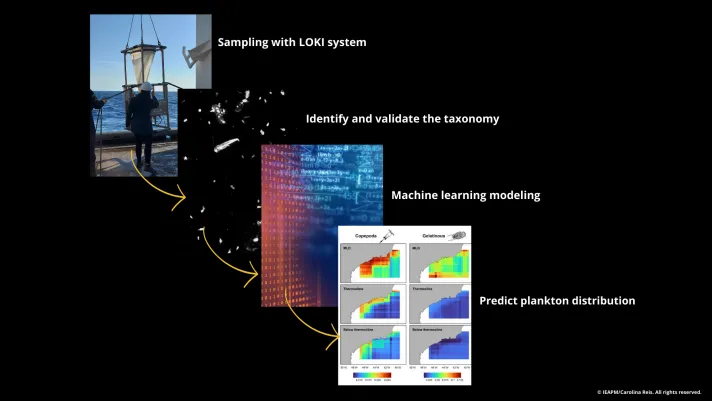The User Organisation
The Institute for Sea Studies Almirante Paulo Moreira (IEAPM) is a science, technology, and innovation institution under the Brazilian Navy Technology Centre. The Institute originated from the Cabo Frio Project, designed by Admiral Paulo de Castro Moreira da Silva, whose life was deeply dedicated to the study of the ocean that today houses it for eternity. IEAPM’s research is essential for the Brazilian Navy to develop strategies to comply with international conventions and reach environmental goals, such as preventing and responding to oil spills or other hazardous substances in Brazilian jurisdictional waters, which may also affect the region. The Institute’s Marine Biotechnology Department focuses on different areas of marine biology and enjoys many partnerships with national and foreign institutes and universities, allowing visiting researchers and students to conduct their work.
Challenges faced
The Lightframe On-Sight Key Species Investigation (LOKI), an underwater camera system designed for vertical hauls, was utilised to capture in situ images of zooplankton continuously. The camera is also equipped with a CTD environmental sensor that measures the water column conductivity, depth and temperature. This allows for both biological and environmental data to be collected at multiple stations with a fine-scale depth interval of less than 1 metre, capturing approximately 24 frames per depth. By the end of each station, around 500,000 zooplankton images were obtained for validation and standardisation.
Managing quality control in the context of big data is a complex task—often unfamiliar to scientists who may not be well-versed in the required standards. Therefore, it is ideal for a specialised professional to handle the quality control checks, especially given the scale of the dataset.
EMODnet Services Used
The EMODnet Biocheck tool was used to Quality Control the dataset titled “Spatial distribution of plankton in the Cabo Frio Upwelling System in the South Brazilian Shelf” in preparation for its publication in EMODnet. The dataset was mobilised in the context of the Graduate Program in Marine Biotechnology from the IEAPM in partnership with the Federal Fluminense University (UFF), as part of the objectives of the European Union’s Horizon 2020 research and innovation programme Mission Atlantic (Grant Agreement No 862428).
The EMODnet Biology data quality control tool was used in our dataset to identify errors and potential enhancements in the structure of the data, its taxonomy, geography and overall (meta)data accuracy, correctness and interoperability. The tool was essential to provide us feedback about the necessary changes in (meta)data formats according to the DwC-A, ensuring the Findability, Accessibility, Interoperability and Reusability (FAIR) principles of the data collection. The dataset is now findable in the EMODnet Product Catalogue.
The data harmonisation process of which the EMODnet Biocheck tool was part of in the context of this dataset, is being compiled in preparation to be published in a scientific journal.
The EMODnet Biology Data Laundry Q/A sessions (initially organised for consortium organisations) were also particularly very helpful and valuable, offering hands-on learning guided by a specialised professional.

Knowledge creation from data collection with the LOKI system to plankton prediction. Credits: IEAPM/Carolina Reis
